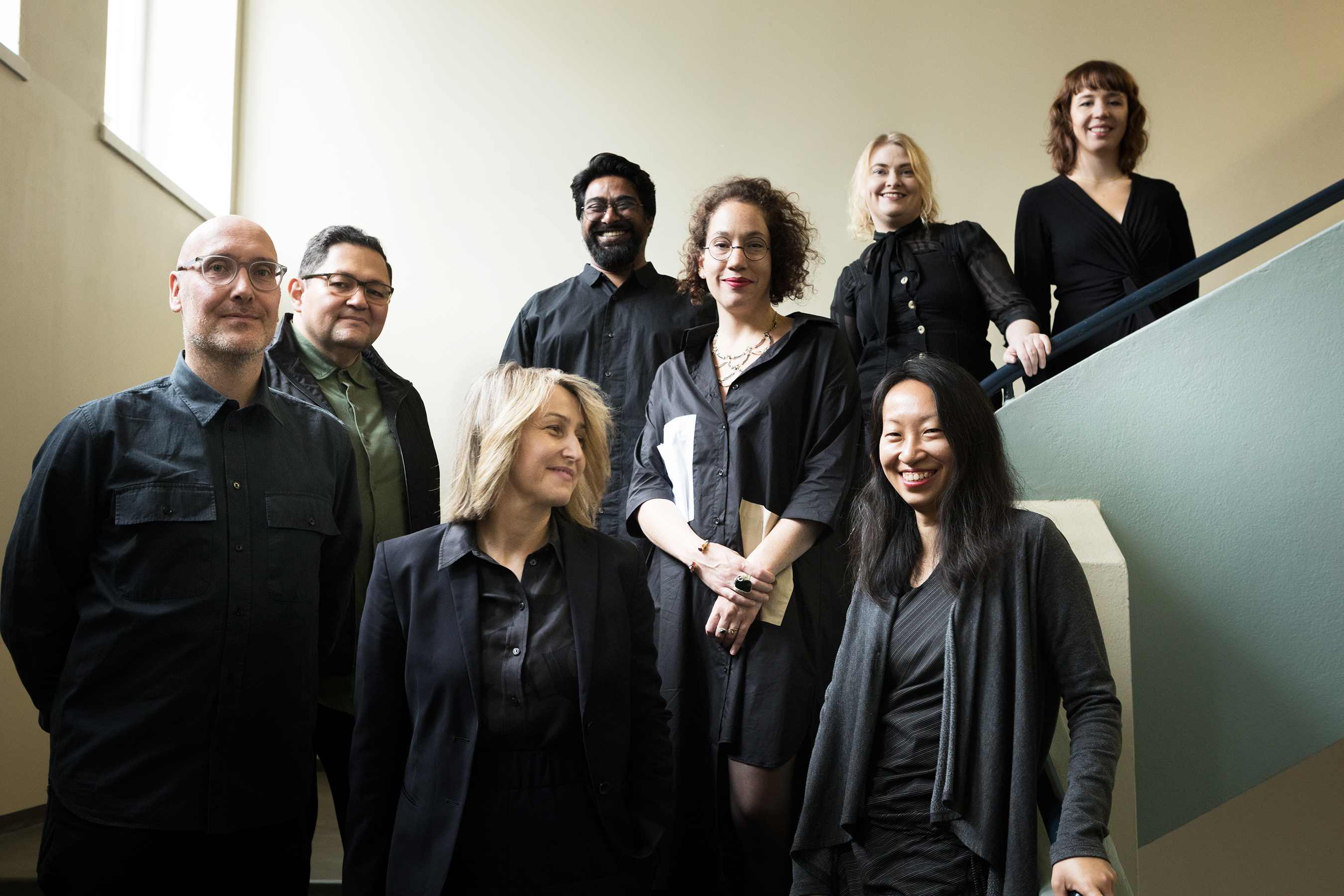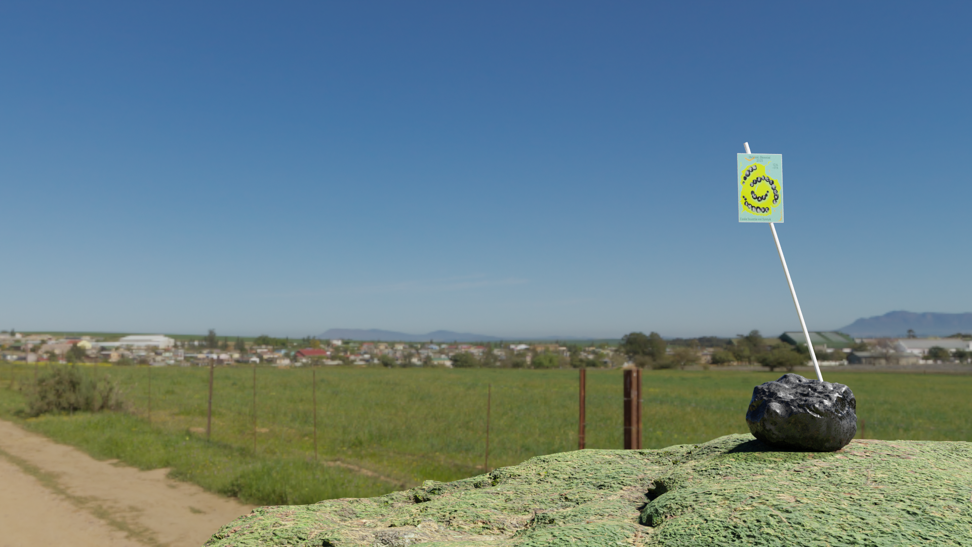
Helsinki Biennial and Joasia Krysa invited five arts, research, and technological entities as curatorial collaborators in the 2023 biennial. The collaborators were Museum of Impossible Forms, a cultural centre and queer-feminist project located in East Helsinki; TBA21–Academy, a research centre and cultural ecosystem fostering a deeper relationship to the ocean through the lens of art; Critical Environmental Data, a transdisciplinary research group at Aarhus University in Denmark; ViCCA @ Aalto ARTS (Visual Cultures, Curating and Contemporary Art), Aalto University’s transdisciplinary major; and an A.I. Entity that explored museum collections.
Museum of Impossible Forms (MIF) is a cultural centre located in Kontula, East Helsinki, and the coming together of communities of art and cultural workers invested in building anticolonial, antipatriarchal and non-fascist practices and futures. Over the past six years, MIF has unfolded as a heterogeneous platform to engage with experimental, marginal, and migrant forms of expression, and as a laboratory for experiences, critical thought, and radical imagination. MIF is a collaborative project that seeks to defy prejudices of otherness and structural asymmetries, working for dignity, diversity, equity, allyship and solidarity, and towards developing and strengthening a plurality of knowledges and practices in the arts.
As part of their contribution for the Helsinki Biennale 2023, they will develop two public gatherings and a summer school.
Project led by: Giovanna Espostio Yussif, Marianne Savallampi and Ali Akbar Mehta.
TBA21–Academy is a research centre and cultural ecosystem fostering a deeper relationship to the ocean through the lens of art to inspire care and action. Established in 2011, the Academy has been an incubator for collaborative research, artistic production, and new forms of knowledge by combining art and science for more than a decade. In 2019, TBA21–Academy launched Ocean Space, an exhibition venue located in the Church of San Lorenzo in Venice, as well as Ocean-Archive.org, a user-based online platform.
Project led by: Markus Reymann
Critical Environmental Data is a transdisciplinary research group that focuses on the interaction of aesthetics, digital culture, and worlds of environmental damage. Part of Aarhus University in Denmark, the group conducts research and participates in international curatorial projects in art and design in order to address architectures and infrastructures of environmental data. The group investigates forms of sensing and aesthetics as well as spaces and places of data and environmental change.
Project led by: Jussi Parikka, May Ee Wong and Paolo Patelli
As part of the Helsinki Biennial programme, Critical Environmental Data and Uniarts’ Research Pavilion are hosting a course called Environment, Data, Contamination. The course is a collaborative artistic research studio that engages with the themes of environmental data, sensing, and contamination.
Doctoral candidates and master’s students attending the course have written artistic and theoretical writings engaging with the themes. You can read them here.
ViCCA @ Aalto ARTS – Visual Cultures, Curating and Contemporary Art (ViCCA) is a major at Aalto University’s School of Art, Design and Architecture. ViCCA engages with emerging knowledge and practices at the intersections of multiple fields through an arts-driven engagement with societal, economic, ecological and philosophical concerns. ViCCA is characterised by a strong transdisciplinary approach across art, curating, science, and technology.
Project led by: Bassam El Baroni, Patrizia Constantin
Artist Yehwan Song and the Digital Visual Studies project at the University of Zurich have created a website that combines the collection of HAM Helsinki Art
Museum and multimodal machine learning technology. Users visit an online map of the city and can interact with the collection data based on geolocations. Through the map, the user starts to see the city through the collection, jumping from one panorama view to others through portals, from which they can explore new groupings based on metrics created by the machine. New entanglements emerge from the combined agencies of the model, the visitors, the collection, and the city.
AI Entity is created in collaboration with Digital Visual Studies, a cooperative project funded by the Max Planck Society and hosted by the University of Zurich since January 2020. The project’s aim is to establish the discipline of Digital Visual Studies as to expand Art History towards the Digital Humanities, to modernize its methodologies, and to contribute to forming a first generation of Digital Visual Humanists. Headed by an Executive Committee, the project is a collaboration between Predoctoral Fellows, Postdoctoral Fellows and Visiting Fellows who work in the areas of visual, textual, spatiotemporal and multimodal research. This cooperative project seeks to generate avant-garde research and methodological, technical, and intellectual innovation.
Project led by: Tristan Weddigen, Darío Negueruela del Castillo

HB23’s visual and spatial presentation was a collaboration between design studio The Rodina and spatial consultancy Diogo Passarinho Studio.
The Rodina is a post-critical design studio with an experimental practice drenched in strategies of performance art, play and subversion.
D_P_S is a research-based design studio, founded in 2015 by Diogo Passarinho that studies how emotional contexts can be used to shape spatial memories. D_P_S was commissioned to work as a spatial consultant, working closely with the curatorial team and with an ongoing relationship with The Rodina.
The main partners of Helsinki Biennial 2023 are Metsähallitus, S Group and Clear Channel.
Support was also kindly provided by Saastamoinen Foundation.
Helsinki Biennial 2023’s co-commissioners include Copenhagen Contemporary, KANAL — Centre Pompidou Brussels and TBA21–Academy.
With thanks to Aalto University, Aarhus University, the British Council, the British Embassy in Finland, Frame Contemporary Art Finland, Liverpool John Moores University, Uniarts Helsinki, Uniarts Research Pavilion, The University of Zurich, MO.CO.ESBA Montpellier Contemporain — Ecole Supérieure des Beaux-Arts.
Sunny Cheung, Curator, M+ Museum, Hong Kong
Manuela Moscoso, Executive Director, CARA – Center for Art, Research and Alliances, New York
Kasia Redzisz, Artistic Director, KANAL – Centre Pompidou, Brussels